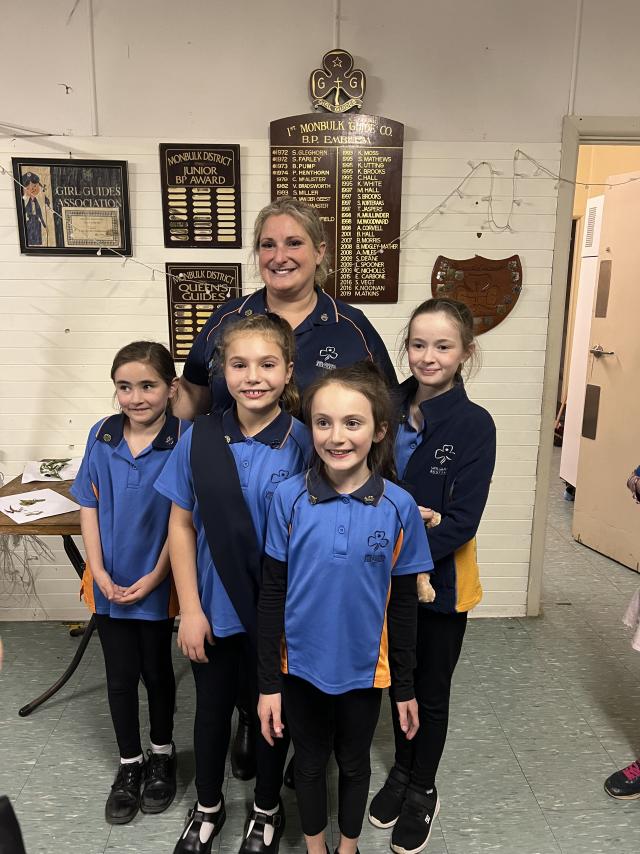By Tyler Wright
Just before Christmas 20 years ago Monbulk local Michelle Hall made the trip to what would have been a normal day as an apprentice hairdresser, without knowing her fate would soon be changed at the hands of another driver.
On Thursday 5 December 2002, as Michelle reached Silvan, the then 19-year-old was hit head on by a car who swerved onto her side of the road, resulting in a crash which left her with two broken arms, two broken legs and no memory of the crash.
Monbulk, Wandin, Silvan CFA fire brigade crews and paramedics attended the scene, with a helicopter landing in the Tesselaar Packing Shed car park airlifting Michelle to the Alfred Hospital.
After hours of theatre, Michelle spent five days in an induced coma with a bleed to the brain, and then would spend six and a half months as an inpatient at two rehabilitation hospitals, and one year as an outpatient.
“I could lift [my legs] up but I couldn’t bend them. Each day was this tiniest bit and I’d be so excited, they’d be looking at me going ‘that’s really good,’ but me I was like ‘oh my god’, it was huge you could move that tiniest bit more each time,” Michelle said.
“My left leg had a compound dislocation, so that had to be put back into place, the right heel was smashed… they had to shoot things into it and hope that it healed; I broke my femur so they had a rod put in…my lip was cut right through,” she said.
Michelle’s family was able to bring Christmas to her hospital room that year, and she was granted leave in January to attend her grandparents’ 50th wedding anniversary.
She was even able to attend her hairdressing graduation ceremony despite the venue not having wheelchair access; with her dad, uncle and now brother-in-law carrying her up the stairs with her chair close behind.
But it hasn’t been an easy recovery process.
Up until five years ago, Michelle was still taking glass out of her face which had resurfaced years after her incident.
She still sees an osteopath for pain in her knees, back and neck and has had a headache ever since the crash, having not been able to pursue her passion for hair-dressing full time because of the inability to stand on her feet for long periods of time.
And the wait times for medical care have been long.
“It’s been a rough ride; you lose weight, you gain weight, you try and lose weight, then you end up injuring yourself with joining the gym and the physio, then that goes around in a vicious cycle,” she said.
Monbulk CFA Fire Brigade captain Simon Schroder attended Michelle’s car accident as a young firefighter, and said the impacts of road trauma extends well beyond the patient.
“You’ve got bystanders and other people involved in accidents, right through the medical fraternity and the police and ambos [who have] got to be exposed to it,” captain Schroder said.
“What you would think is just one person in a head on can affect dozens and dozens of people.”
Captain Schroder said over the past six weeks, Monbulk Fire Brigade crews have attended five road accidents, with “no rhyme or reason” to them.
“It doesn’t matter whether it’s wet or dry; If you’re on your phone, or texting or changing a radio station, it can happen in any weather,” he said.
“From my experience, we probably get more accidents in the rain, but less involvement from us because people are generally slowing down in wet weather, so the impacts of accidents are less because they’re more fender benders.”
Fatigue is a big issue over the Christmas period, he said, for people who may not be familiar with ‘towing fatigue’ as they travel with caravans.
“A reminder to take breaks and have power naps…[It’s] better to get there 10 minutes late and be alive than not at all.”
Michelle now works in administration and is a leader at Monbulk Girl Guides working with young women and girls in the community, and now shares her story each year during the Christmas period to encourage others to be as aware as they can while driving.
“It’s not always your driving that is the issue, it’s other people [that] drive drunk, people that are tired, people that are aren’t concentrating, so you’ve got to be on the ball,” she said.
“There are times when you get that feeling occasionally where it’s all a bit much, but you wouldn’t have it any other way either.”







